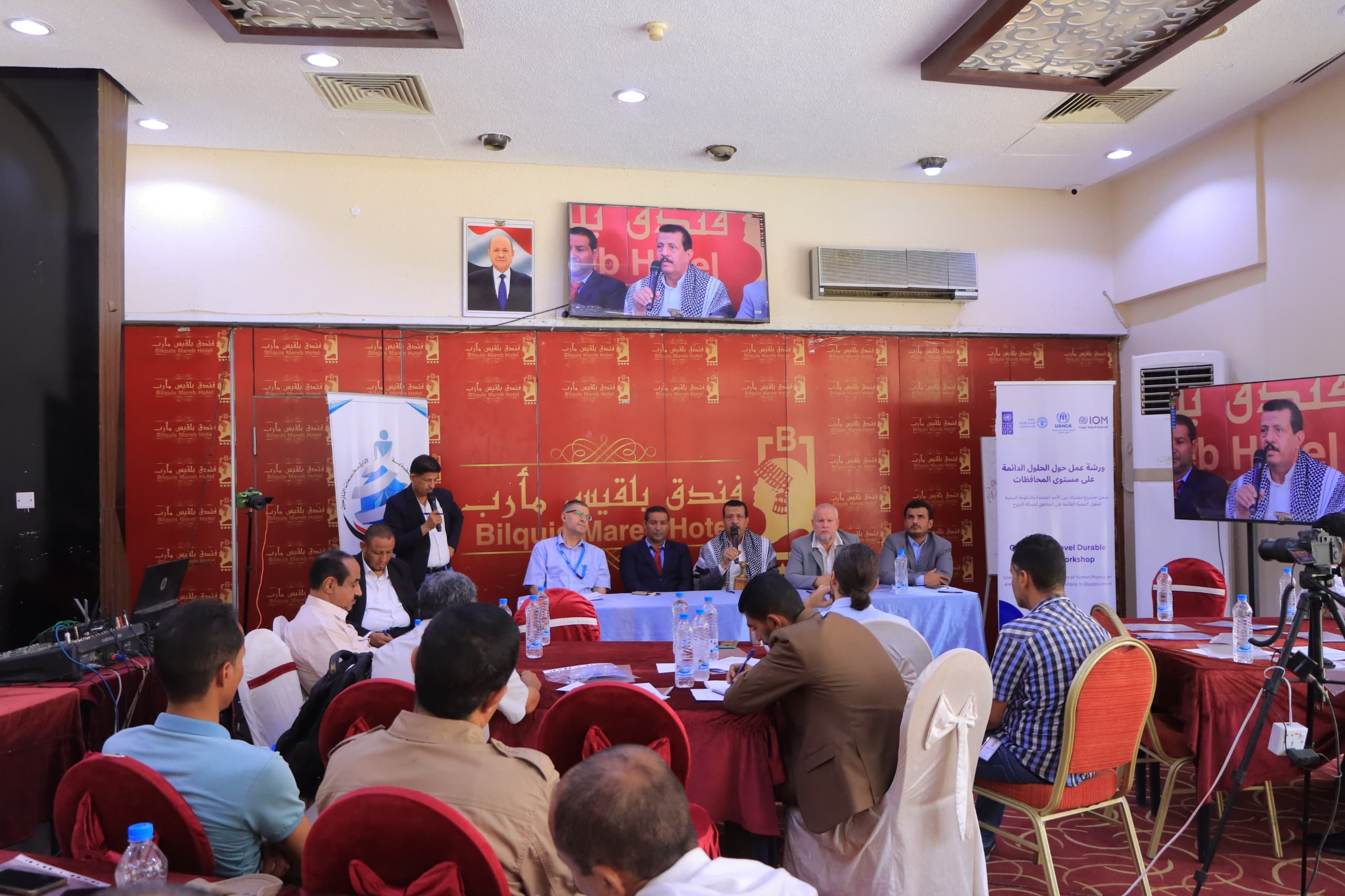


Barran Press
Marib, Yemen, is facing a growing humanitarian crisis as it continues to absorb a massive influx of internally displaced persons (IDPs). The governor's deputy, AbduRabbu Miftah, highlighted the immense strain this influx is placing on local authorities during a workshop on September 17th.
The workshop, organized by the United Nations and the Yemeni government, aimed to introduce local officials to a new development project focused on addressing the root causes of displacement. The initiative, which is slated to run until the end of 2025, seeks to create a shared understanding of solutions for internal displacement.
Miftah described the dire humanitarian situation in Marib, emphasizing the challenges faced by both the local authorities and the displaced population. He stressed the need for a collaborative approach to address the crisis, proposing a joint action plan between local authorities and humanitarian partners to alleviate the suffering of IDPs.
Miftah urged international organizations to provide more sustainable development projects to help displaced Yemenis achieve stability and mitigate the impact of the difficult economic conditions.
The workshop was also attended by the deputy head of the Executive Unit for Displaced Persons, Fadl Abdullah, who explained the project's objective of developing long-term solutions for displacement. He emphasized the project's focus on Marib, which has absorbed 76% of Yemen's IDPs.
Abdullah explained that the project will be implemented by four UN agencies: the Food and Agriculture Organization (FAO), the International Organization for Migration (IOM), the United Nations High Commissioner for Refugees (UNHCR), and the United Nations Development Programme (UNDP). These agencies will work in collaboration with the Executive Unit for Displaced Persons.
The project will involve surveys and training programs aimed at enhancing the capacity of the Executive Unit and local authorities to develop province-level development plans for long-term solutions for displaced persons.
Marib currently hosts over three million IDPs, who are facing dire humanitarian conditions due to insufficient humanitarian aid from international organizations and a lack of infrastructure and resources within the local government.